Camden Bat Removal
Welcome to Camden Bat Removal! We are New Jersey bat removal specialists. It is important to know that bats are protected by New Jersey law, and are beneficial animals to have in the environment. We do not kill any bats during our bat removal process. Never hire a pest control company or anyone who says they are a Camden bat exterminator. For correct and effective bat removal, you want a company that specializes in humane bat colony extraction. Our process is not only the only legal method in New Jersey, but it is the most effective. We have a 100% success rate in our bat control process. We perform our industry-best 32-point inspection of your house or building, and seal shut all bat entry holes down to 1/4 inch as part of the removal process, during which we remove the colony via special one-way exclusion devices specific to your architecture. Once all bats are safely out, we permanenetly bat-proof the structure. We also provide guano (bat droppings) removal and decon. Click on our Camden Bat Control Prices page to find out more about our prices for bat control work. We work 24/7/365, and would love to talk to you about your bat problem. Call us any time at 856-394-5583 to discuss it, discuss our pricing, and if you wish, set up an appointment at your convenience, often same-day.
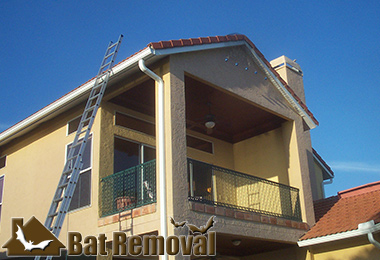
Camden Building and Attic Inspections
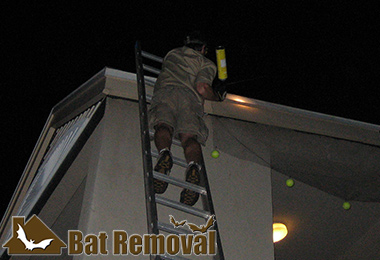
No-kill New Jersey Bat Extraction
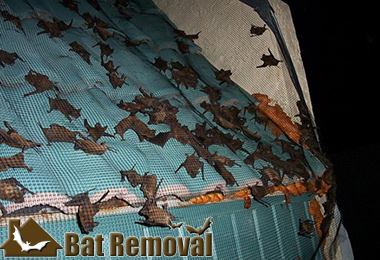
Guano Cleanouts - Serving all of New Jersey
Call 24/7 to discuss your bat problem.
Same-day or next-day appointments.
32-point inspection of your property.
Written estimates for bat removal project.
Fully state licensed and insured.
Residential and commercial service
100% no-kill Camden bat extraction
Complete bat-proofing of your building
Compliance with all New Jersey, federal laws
Guano removal and attic decontamination
Our Service Range - 856-394-5583
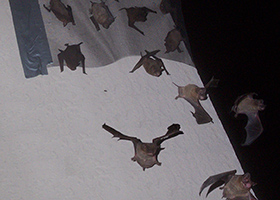
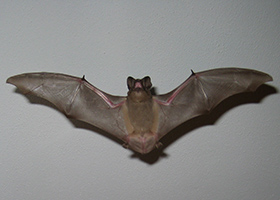
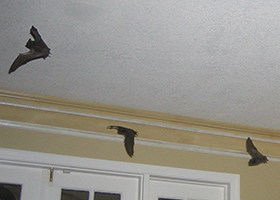
The Threats of Lighting to Bats
The bats are nocturnal creatures that have adapted on living in the darkness. They will choose to move at night since they must avoid the threat of the predators such as hawks. Therefore, installing lights close to the roosting area of the bats may cause detrimental effect on their lifestyle. This can be seriously disturbing to the lives of the bats and may cause a range of problems.
Negative Effects of Lighting to Bats
When you walk at night, it will not be difficult to notice how a lot of insects will be drawn towards the light. Lights are known to emit wavelengths that attracts these bugs. These bugs are part of the natural diet of the bats. Sadly, there are instances when they will not able to endure the presence of lights.
Delayed Emergence on Their Roosting Site
If there is an artificial lighting system installed closed to the roosting site of the bats, this may delay the bat's emergence from their roosting site. This may then result in the reduced time that they can use to hunt for insects. They will then be able to miss the best time that the insect will gather together. Usually, they will need to come out at around 15 minutes after dusk. Missing this opportunity will have a negative effect on their growth and survival rate.
Abandoning Their Roost
There are some cases when the bats will abandon the roosting site when they are exposed to artificial lightings. There are also bats that will become entombed in their roosting site especially if the lighting is installed outside the entry points. Installing the lighting system on the entrance can also be a violation on the law, since the bats are protected under the law.
Detrimental Effect on the Feeding Habit of Bats
There are species of bats that tend to avoid the areas with lights such as those that belong in the species of Myotis. Therefore, they will be losing their foraging site if the area is surrounded with lighting system. This change will prompt the bats to forage foods on the low-quality sites with lesser insects. The light serves as a vacuum that attracts the attention of the insects.
These species of bats that avoid lights belong in the most uncommon types of bats. Nonetheless, even those common bats can sometimes be affected by the lights. There are bats that can be opportunistic and will voraciously eat the insects that gather on the lamps. However, developing this type of behavior can expose them to the attack of the predators especially to the falcons that can learn about the hunting activities of these bats.
When you must illuminate the area, it is extremely important to consider the presence of the bats. You need to determine what species of bats are present and whether they will react negatively to the presence of the artificial lights. You should also ask the local wildlife center especially if you are situated close to the roosting site of the bats.

